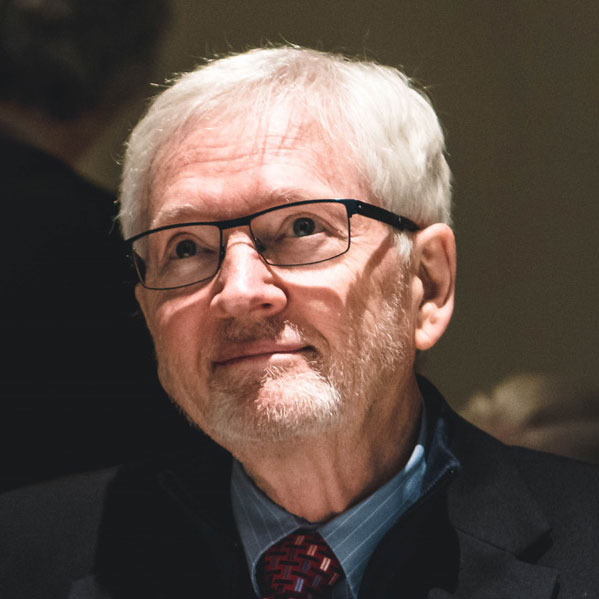Walter Munk Medal
ABOUT
The Walter Munk Medal is awarded biennially to an individual for extraordinary accomplishments and novel insights contributing to the advancement or application of physical oceanography, ocean acoustics, or marine geophysics. Additionally, the Munk Medal seeks to recognize individuals who have made significant contributions toward educating and mentoring students and early career ocean professionals or who have conducted significant interdisciplinary research and/or collaborative work towards meaningful societal impact.The Walter Munk Medalist will be invited to deliver the Munk Lecture at a designated Ocean Sciences Meeting.
CRITERIA
Outstanding contributions to the understanding of and/or the advancement or application of physical oceanography, ocean acoustics, or marine geophysics.
These contributions may be demonstrated by:
- Educating and mentoring students and early career ocean professionals
- Interdisciplinary research in ocean science
- Collaborative work towards meaningful societal impact
ELIGIBILITY
NOMINEES
- Active membership in The Oceanography Society is not required at the time of nomination.
- TOS officers and members of the Council are not eligible for selection during their terms of service.
- Nomination is for an individual from any country. Nominations are sought for individuals who have not received similar awards in the past two years (from TOS or other societies).
- If selected, nominees must certify their compliance with all TOS policies, specifically the Professional Integrity, Ethics, and Conduct and Guidelines on Implementation.
NOMINATORS
- Anyone can serve as a nominator for another individual. Potential candidates should feel encouraged to ask a potential nominator to advance a nomination. We also encourage self-nominations. Self-nominations should also include a nomination letter.
- Nominators are not required to be TOS members.
- One co-nominator is allowed.
- Nominators must certify their compliance with all TOS policies, specifically the Professional Integrity, Ethics, and Conduct and Guidelines on Implementation and acknowledge the TOS Values Statement on Justice, Equity, Diversity and Inclusion.
SUPPORTERS
- Supporters are not required to be TOS members.
SUBMISSION AND DEADLINE INFORMATION
- Nominations must be submitted using the Online Nomination System which will open in late winter 2027.
- The nominations deadline will be March 31, 2027.
- Nominations must include the elements described in the Nomination Package section below.
NOMINATION PACKAGE
Nominations are must include the following elements:
1. CITATION
- Please suggest text that may be edited to appear in news releases and on a certificate presented to the recipient. The text of this citation should be 200 characters or less.
2. PROFESSIONAL HISTORY
- Nominee’s curriculum vita or resume (five pages maximum) must be up to date and include the nominee’s name, mailing and email addresses.
- A description of the nominee's outstanding contributions (two pages maximum). If in the form of a bibliography, include key publications or products and indicate when students or postdocs appear as first author. If in narrative form, please provide descriptions and include any links that may be available to reference material (website, projects, initiatives, etc.).
3. NOMINATION LETTER
- The nomination letter can be a maximum of two pages and must include the name, title, affiliation, and contact information for the nominator or co-nominators.
- The letter should succinctly describe why the nominee is suited to receive the award, highlight their accomplishments, and elaborate on any information that is not specifically addressed in the nomination materials.
4. SUPPORTING LETTERS
- At least two but not more than three individuals may provide support for the nomination. These individuals are in addition to the nominator or co-nominators. Supporting letters are capped at two pages in length (800 words maximum, 12-point font) and must include the supporter's name, title, and contact information, relationship to the nominee, and clear justification for the qualifications of the nominee.
ABOUT WALTER MUNK
Walter H. Munk (1917–2019) was an American physical oceanographer and geophysicist. Born in Vienna, Austria, in 1917, Walter was sent to the United States in 1932 to attend preparatory school, after which he studied at Columbia University and began work in a New York bank. Unhappy with banking, Munk moved west to study at the California Institute of Technology, where he received a BS in applied physics (1939) and MS in geophysics (1940). In 1939, he applied for a summer job at the Scripps Institution of Oceanography, where he met Harald Sverdrup who became his friend, mentor and doctoral advisor. His planned doctoral study was interrupted World War II, during which he and Sverdrup developed surf forecasting methods that assisted the Allied landings, the beginning of Munk’s lasting research association with the U.S. Navy. After completing his PhD at Scripps in 1947, Walter continued there as an assistant professor, becoming a full professor in 1954, and serving as director of the Institute of Geophysics and Planetary Physics at Scripps from 1962 to 1982. In his research, Munk made important contributions to an astonishing range of topics, including tsunami monitoring, large-scale ocean circulation, Earth’s rotation, the oceanic lithosphere, ocean waves (including internal waves), tides, ocean mixing, and ocean acoustics (including the development of ocean acoustic tomography). Walter received numerous awards and honors, including election to the U.S. National Academy of Sciences and the U.K. Royal Society, Guggenheim and Fulbright Fellowships, the Arthur L. Day Medal of the Geological Society of America, the Sverdrup Gold Medal of the American Meteorological Society, the first Maurice Ewing Medal of the American Geophysical Union and the U.S. Navy, and many more. In addition, he was the first recipient of the Walter Munk Award, awarded jointly by the Oceanography Society, the U.S. Office of Naval Research, and the U.S. Naval Oceanographic Office, in recognition of distinguished research in oceanography related to sound and the sea.
MEET THE RECIPIENTS
 2024 MEDAL – N. ROSS CHAPMAN 2024 MEDAL – N. ROSS CHAPMANFor applications of advanced signal processing approaches to acoustical oceanography and contributions to geo-acoustic inversions > Read More |
|
PREVIOUS RECIPIENTS |
QUESTIONS?
If you have any questions about the the Munk Medal, please contact Jenny Ramarui, TOS Executive Director.
Background photo credit: Erlantz Pérez Rodríguez/iStock.com

© 2026 The Oceanography Society
1 Research Court, Suite 450-117, Rockville, MD, 20850, USA | Phone: (1) 301-251-7708 | [email protected] | Privacy Policy




